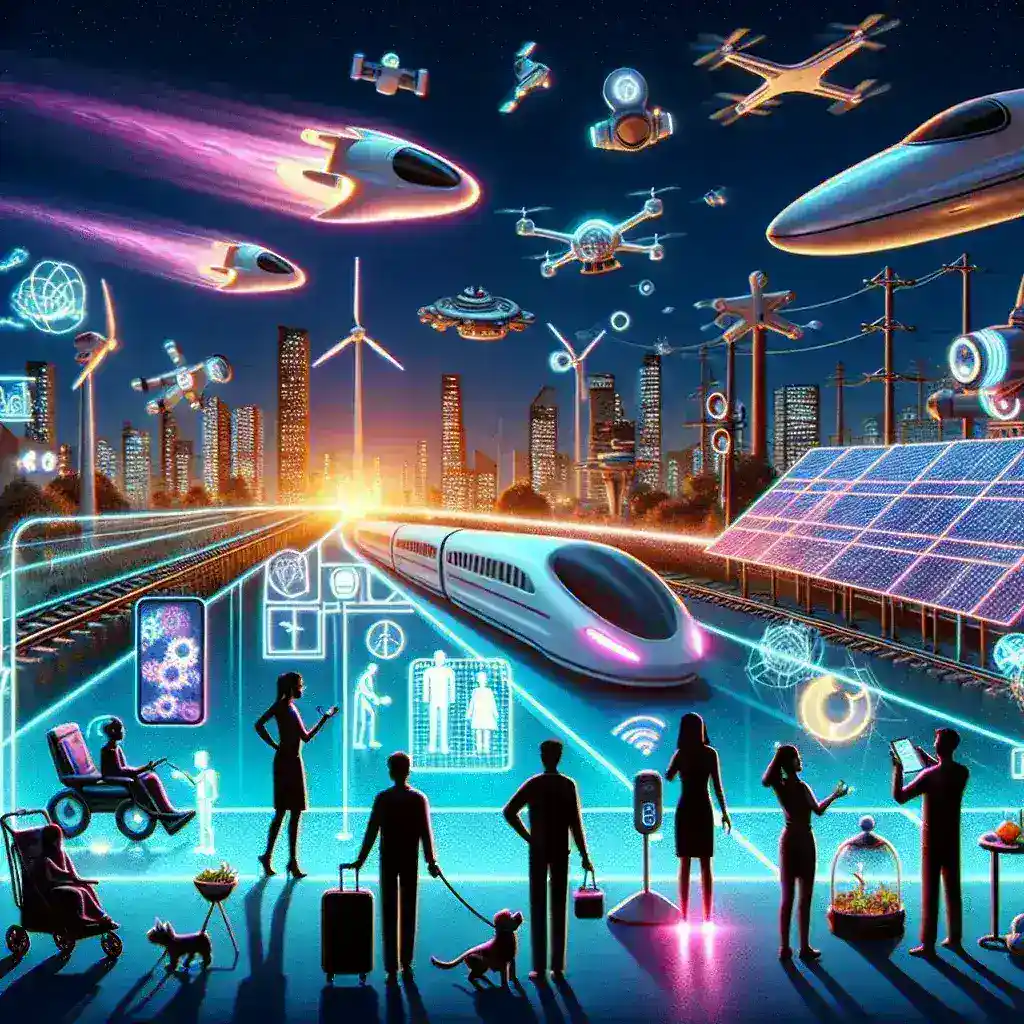The Rise of Artificial Intelligence and Machine Learning
By 2025, artificial intelligence (AI) and machine learning are expected to play a central role in everyday life. From virtual assistants tailored to individual needs to automated systems making decisions on our behalf, AI will enhance both convenience and efficiency in various domains. Experts anticipate that AI applications will handle routine tasks, freeing up time for people to focus on creative and strategic pursuits.
Smart Homes and the Internet of Things (IoT)
Smart home technology will continue to evolve, enabling devices to work seamlessly together through the Internet of Things (IoT). Homes will become increasingly intuitive, with interconnected appliances and systems optimizing energy consumption, security, and comfort. For example:
- Smart thermostats will learn the occupants’ daily habits to adjust temperatures automatically.
- Advanced security solutions will offer real-time monitoring and instant alerts.
Healthcare Innovations
The healthcare industry is set to undergo transformative changes with advancements in telemedicine, wearable health devices, and personalized medicine. These innovations will make healthcare more accessible and tailored to individual needs. Key advancements include:
- Wearable devices that continuously track vital signs, allowing for the early detection of potential health issues.
- Telemedicine platforms enabling patients to consult with doctors remotely, reducing the need for physical visits.
Transportation and Mobility
The transportation sector will be revolutionized by the adoption of electric and autonomous vehicles. These technologies will provide safer, more efficient, and environmentally friendly travel options. Expectations include:
- Autonomous vehicles minimizing traffic accidents caused by human error and improving traffic flow.
- Electric cars significantly reducing carbon emissions, contributing to a cleaner, more sustainable planet.
Renewable Energy and Sustainability
Technological advancements in renewable energy, particularly in solar and wind power, will support more sustainable living. Important developments are:
- Improved energy storage solutions that make it easier to rely on renewable sources.
- Innovations like smart grids enhancing energy distribution efficiency.
These developments will reduce reliance on fossil fuels and promote a greener, more sustainable future.
Augmented and Virtual Reality
Augmented reality (AR) and virtual reality (VR) will become more widely used, transforming experiences in education, entertainment, and work. These technologies will offer immersive and interactive ways to learn, collaborate, and engage with the world. For instance:
- AR and VR can facilitate virtual field trips and interactive learning experiences in education.
- In professional environments, they will enhance remote collaboration and provide realistic training simulations.
Enhanced Connectivity with 5G
The deployment of 5G networks will greatly improve connectivity, delivering faster internet speeds and more reliable connections. This advancement will enable technologies like IoT, AR, and VR to function more efficiently and seamlessly. Enhanced connectivity will also strengthen remote work and online learning, making them more effective and widely accessible.
Conclusion
As we move closer to 2025, technological progress will dramatically reshape daily life. From the widespread implementation of AI and IoT to groundbreaking developments in healthcare and transportation, these innovations promise a more interconnected, efficient, and sustainable world. Embracing these changes will not only enhance the quality of life but also help tackle some of the world’s most significant challenges.

